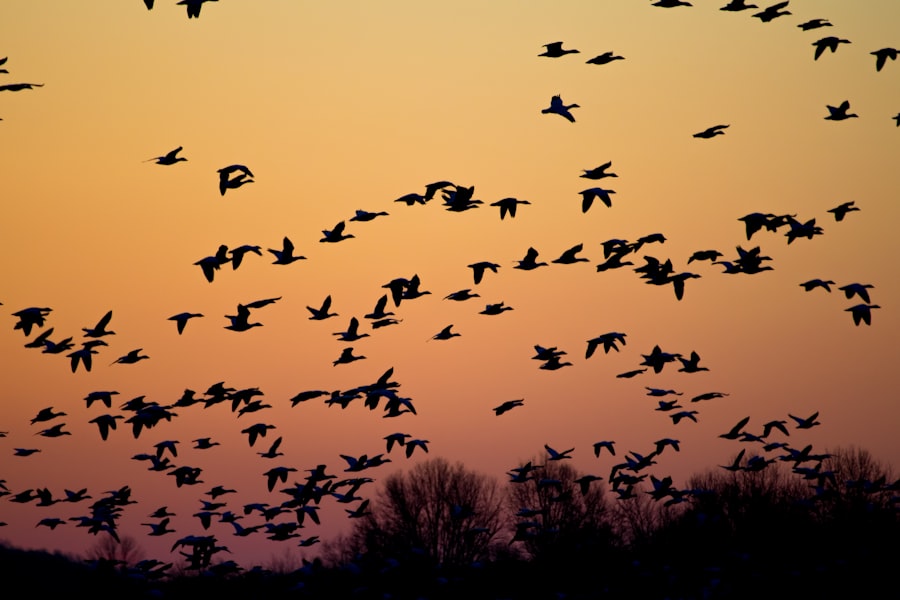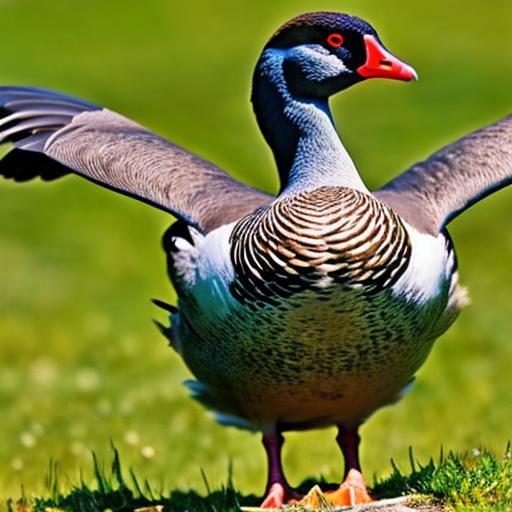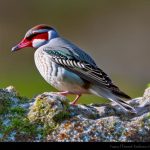Geese are a common sight in many areas, and while they may seem harmless, they can actually cause a lot of damage to your property. From leaving droppings everywhere to destroying vegetation, geese can quickly become a nuisance. That’s why it’s important to understand their behavior and implement strategies to manage them effectively. In this article, we will explore different methods to keep geese away from your property and create a more harmonious environment.
Key Takeaways
- Geese are social animals that prefer to live in groups and are highly territorial.
- Geese are attracted to properties with open water, lush vegetation, and areas with little human activity.
- Physical barriers such as fences, netting, and hedges can be effective in keeping geese away from your property.
- Decoys such as fake predators or other animals can be used to deter geese from settling on your property.
- Creating a hostile environment for geese by using repellents, removing nesting sites, and limiting access to water can discourage geese from staying on your property.
Understanding the behavior of geese
Geese are social animals that live in flocks and are known for their honking calls and distinctive V-shaped flight patterns. They are highly adaptable and can thrive in a variety of habitats, including urban areas. Geese are herbivores and primarily feed on grasses, aquatic plants, and grains. They are attracted to open spaces with easy access to water and food sources.
Geese behavior can have a significant impact on your property. Their droppings can create unsightly messes and pose health risks due to the bacteria they carry. Additionally, geese can damage lawns and gardens by trampling vegetation and eating crops. Understanding their behavior is crucial in order to effectively manage them.
Identifying the reasons why geese are attracted to your property
There are several reasons why geese may be attracted to your property. One common reason is the presence of open water sources such as ponds or lakes. Geese need water for drinking, bathing, and escaping from predators, so if you have a water feature on your property, it may be attracting them.
Another reason geese may be attracted to your property is the availability of food sources. Geese feed on grasses and other vegetation, so if you have a well-maintained lawn or garden, it may be an attractive feeding ground for them.
Lastly, geese are attracted to open spaces where they can feel safe from predators. If your property has large, open areas with minimal vegetation or structures, it may be an ideal habitat for geese.
Implementing physical barriers to keep geese away
One effective method of managing geese is to install physical barriers that prevent them from accessing your property. There are several types of barriers that can be used, including fences, netting, and hedges.
Fences can be a highly effective way to keep geese out of certain areas. A fence should be at least three feet high and have small enough gaps to prevent geese from squeezing through. Additionally, it’s important to bury the bottom of the fence at least six inches deep to prevent geese from digging underneath.
Netting can also be used to create a barrier between geese and your property. It can be installed over ponds or other water features to prevent geese from landing and accessing the water. Netting should be securely fastened and have small enough holes to prevent geese from getting tangled.
Hedges can serve as a natural barrier to keep geese away. Dense, thorny hedges can make it difficult for geese to access your property. However, it’s important to regularly trim and maintain the hedges to ensure they remain effective.
Using decoys to deter geese from your property
Decoys can be an effective tool in deterring geese from your property. Geese are highly territorial and will avoid areas where they see other geese. By placing decoys in strategic locations, you can create the illusion of a populated area and discourage geese from landing.
Decoys should be placed near water sources or areas where geese are likely to land. They should be positioned in a way that mimics natural behavior, such as feeding or resting. It’s important to regularly move the decoys around to prevent geese from becoming accustomed to their presence.
Creating a hostile environment for geese

Creating a hostile environment for geese can be an effective way to deter them from your property. There are several methods you can use to make your property less attractive to geese.
One method is to install motion-activated sprinklers. These sprinklers will turn on when they detect movement, scaring away geese with a sudden burst of water. This can be particularly effective near water sources or areas where geese tend to congregate.
Another method is to use reflective objects such as Mylar tape or balloons. These objects create flashes of light that can startle geese and make them feel unsafe. They can be hung near water sources or in open areas where geese are likely to land.
Lastly, you can use scare devices such as scarecrows or predator decoys. These devices create the illusion of a threat and can deter geese from landing or feeding in certain areas. It’s important to regularly move these devices around to prevent geese from becoming accustomed to their presence.
Using sound and light to scare geese away
Sound and light can be effective tools in scaring geese away from your property. Geese are sensitive to loud noises and bright lights, so using these stimuli can help create a hostile environment for them.
One method is to use noise-making devices such as propane cannons or air horns. These devices emit loud noises at regular intervals, scaring away geese with the sudden bursts of sound. It’s important to check local regulations before using these devices, as they may be restricted in some areas.
Another method is to use strobe lights or laser pointers. These lights create flashes of bright light that can startle geese and make them feel unsafe. They can be particularly effective when used near water sources or in open areas where geese are likely to congregate.
Planting vegetation that geese dislike
Planting vegetation that geese dislike can be an effective way to deter them from your property. There are several types of vegetation that geese find unappealing and are less likely to feed on.
One type of vegetation is tall grasses. Geese prefer short, manicured lawns, so planting tall grasses can make your property less attractive to them. Tall grasses also provide cover and make it more difficult for geese to see potential predators.
Another type of vegetation is plants with prickly or thorny leaves. Geese are less likely to feed on plants that have sharp leaves, as they can cause discomfort or injury. Examples of plants with prickly leaves include holly bushes, rose bushes, and barberry bushes.
Lastly, you can plant native plants that are not palatable to geese. Native plants are adapted to the local environment and are less likely to be eaten by geese. Additionally, native plants provide important habitat for other wildlife and can enhance the biodiversity of your property.
Removing sources of food and water that attract geese
Removing sources of food and water can be an effective way to deter geese from your property. Geese are attracted to areas with abundant food and water sources, so by removing these resources, you can make your property less appealing to them.
One method is to remove or reduce the amount of open water on your property. This can be done by draining ponds or covering them with netting. By eliminating or reducing access to water, you can discourage geese from landing and staying on your property.
Another method is to remove or reduce the amount of grassy areas on your property. Geese feed primarily on grasses, so by reducing the amount of available food, you can make your property less attractive to them. This can be done by replacing grassy areas with gravel or other non-vegetative surfaces.
Lastly, it’s important to clean up any spilled birdseed or other food sources that may attract geese. Geese are opportunistic feeders and will take advantage of any available food. By removing these food sources, you can discourage geese from feeding on your property.
Seeking professional help to manage geese
In some cases, it may be necessary to seek professional help to manage geese on your property. Professional wildlife management companies have the knowledge and experience to effectively manage geese and can provide long-term solutions to prevent their return.
When hiring a professional, it’s important to choose a reputable company that specializes in wildlife management. They should have the necessary permits and licenses to handle geese and should use humane methods to deter them from your property.
Before hiring a professional, it’s a good idea to get multiple quotes and ask for references from previous clients. This will help ensure that you are hiring a company that is experienced and trustworthy.
Educating your community about responsible goose management
Educating your community about responsible goose management is an important step in effectively managing geese. By raising awareness and providing information, you can encourage your neighbors to take action and create a more harmonious environment for everyone.
One way to educate your community is by hosting workshops or seminars on responsible goose management. These events can provide information on the behavior of geese, as well as strategies for managing them effectively. It’s important to invite local experts or wildlife professionals to speak at these events and provide accurate information.
Another way to educate your community is by distributing informational materials such as brochures or flyers. These materials can be distributed at community centers, libraries, or other public spaces. They should include information on the negative impacts of geese, as well as tips for managing them.
Lastly, it’s important to lead by example and practice responsible goose management on your own property. By implementing effective strategies and maintaining a goose-free environment, you can inspire others in your community to do the same.
Geese can be a nuisance on your property, but with the right strategies, you can effectively manage them and create a more harmonious environment. By understanding their behavior, identifying the reasons why they are attracted to your property, and implementing physical barriers, decoys, and other deterrents, you can keep geese away and prevent damage to your property. Additionally, by educating your community about responsible goose management, you can inspire others to take action and create a more goose-free environment for everyone. So don’t let geese take over your property – take action today and reclaim your space.
If you’re looking for effective ways to keep geese away from your property, you might find this article on Poultry Wizard helpful. It discusses whether geese can eat chicken feed and provides insights into the potential risks and benefits of feeding geese with chicken feed. Check it out here to learn more. Additionally, if you’re interested in creating a secure and convenient space for your chickens, Poultry Wizard offers articles on snap-lock chicken coops (link) and garden chicken coops (link).
FAQs
What are some effective ways to keep geese away from my property?
There are several effective ways to keep geese away from your property, including using decoys, installing fencing, using repellents, and modifying the landscape.
What kind of decoys can I use to keep geese away?
You can use decoys that resemble natural predators of geese, such as coyotes, foxes, and owls. You can also use decoys that resemble other geese to deter them from landing on your property.
What kind of fencing is effective in keeping geese away?
Fencing that is at least 3-4 feet tall and has small mesh or wire spacing can be effective in keeping geese away. Electric fencing can also be effective in deterring geese.
What kind of repellents can I use to keep geese away?
There are several types of repellents that can be effective in keeping geese away, including visual repellents, auditory repellents, and taste repellents. Some examples include reflective tape, noise makers, and bitter-tasting sprays.
How can I modify my landscape to keep geese away?
You can modify your landscape by removing any standing water or other sources of food and shelter that may attract geese. You can also plant vegetation that geese do not like to eat, such as prickly or thorny plants.
Meet Walter, the feathered-friend fanatic of Florida! Nestled in the sunshine state, Walter struts through life with his feathered companions, clucking his way to happiness. With a coop that’s fancier than a five-star hotel, he’s the Don Juan of the chicken world. When he’s not teaching his hens to do the cha-cha, you’ll find him in a heated debate with his prized rooster, Sir Clucks-a-Lot. Walter’s poultry passion is no yolk; he’s the sunny-side-up guy you never knew you needed in your flock of friends!







